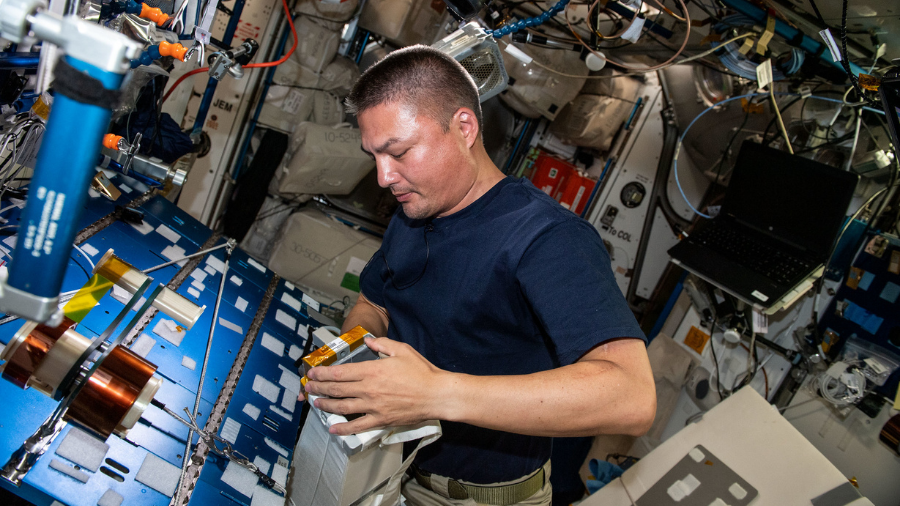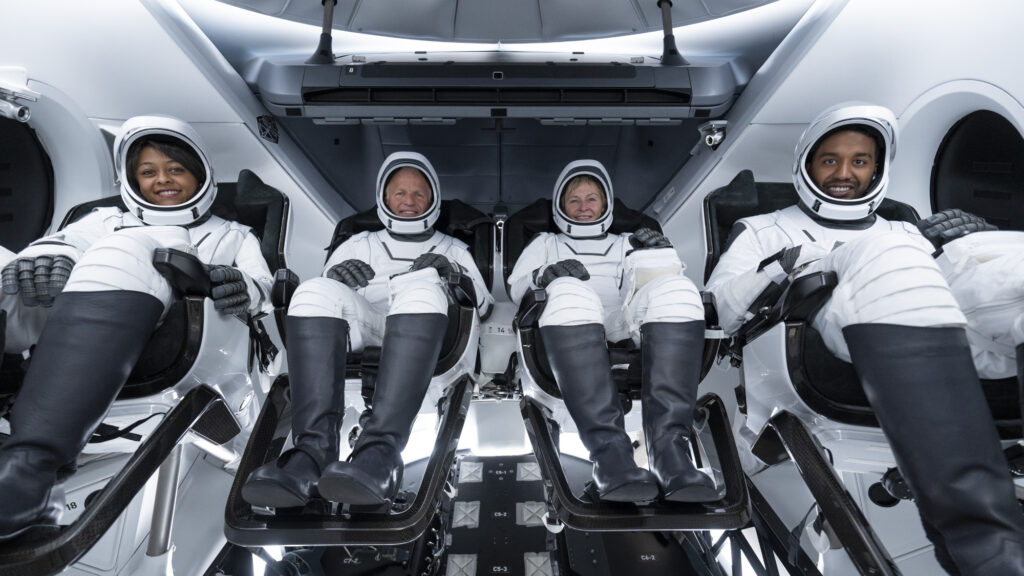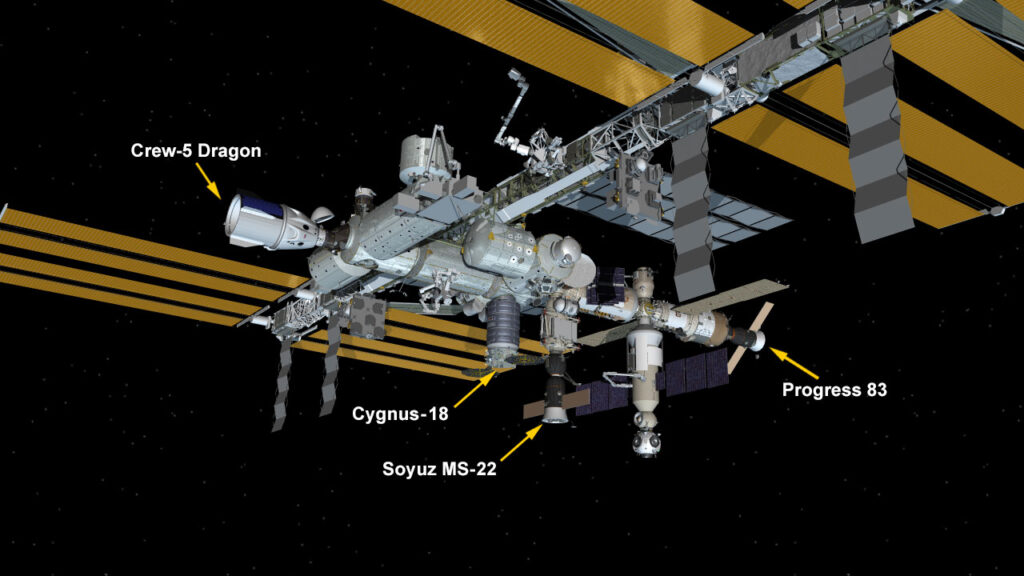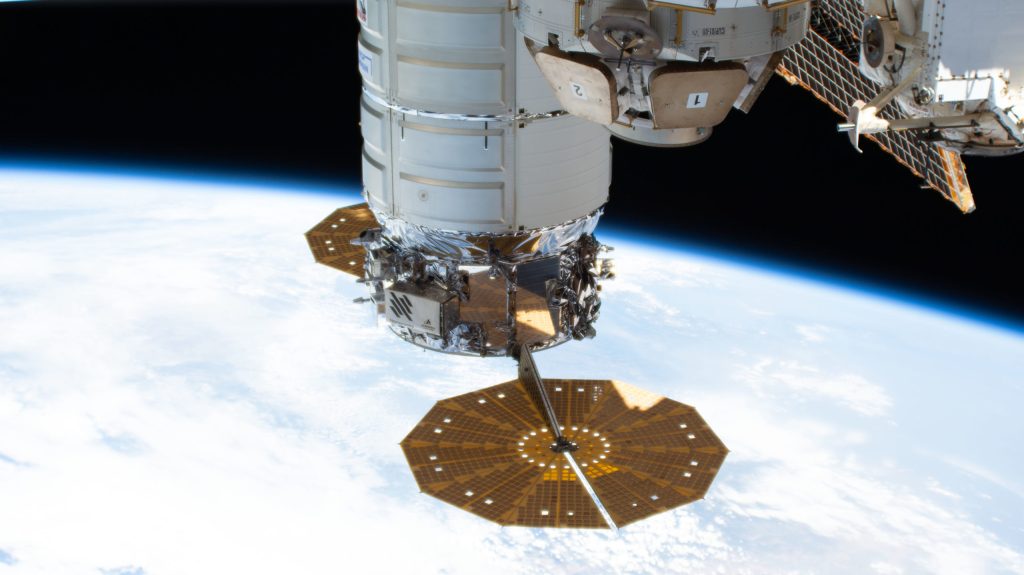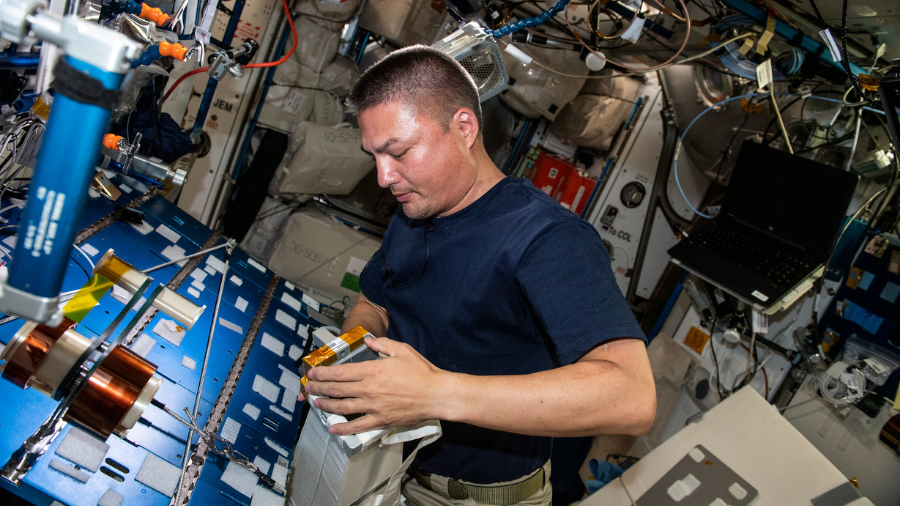
Artificial intelligence, hearing tests, and a microscope setup topped the research agenda aboard the International Space Station on Friday. The seven Expedition 67 crew members also divided their day with ongoing spacewalk preparations, training video recording, and orbital plumbing duties.
The astronauts have been exploring space manufacturing techniques to take advantage of the weightless environment that could advance the production and output of Earth and space industries. The current Intelligent Glass Optics study investigates using artificial intelligence as a way to adapt Earth-bound manufacturing processes for microgravity. NASA Flight Engineer Jessica Watkins opened up the Microgravity Science Glovebox (MSG) on Friday swapping samples of fiber optic cable for the experiment. NASA Flight Engineer Kjell Lindgren of NASA then monitored an experiment run drawing fiber inside the MSG for the study potentially benefitting the communications, aerospace, medicine, and astronomy fields.
Watkins then partnered with NASA Flight Engineer Bob Hines and filmed station training videos to familiarize future astronauts with life on orbit. Hines later performed pressure checks on a U.S. spacesuit jet pack as part of regularly scheduled maintenance. The jet pack, also known as SAFER (Simplified Aid for EVA Rescue), provides a spacewalker the ability to return to the station in the unlikely event they become untethered from their worksite.
A major characteristic of life on the space station is the continuously operating gear such as thermal, electronics, and life support systems. The Acoustic Diagnostics study is exploring whether station equipment noise levels and the microgravity environment may create possible adverse effects on astronaut hearing. Samantha Cristoforetti of ESA (European Space Agency) and Lindgren both participated in that study today wearing acoustic monitors that measure station sound levels. The acoustic data will help researchers understand the station’s sound environment and may inform countermeasures to protect crew hearing.
Lindgren also continued setting up a specialized microscope that uses spatial filtering techniques to observe cellular and tissue structures inside the Kibo laboratory module. Cristoforetti wrapped up her day working on fluid transfer tasks in the Harmony and Tranquility modules.
Station Commander Oleg Artemyev continued preparing for a spacewalk that he and Cristoforetti will conduct to outfit the European robotic arm attached to the Nauka multipurpose laboratory module. He joined Flight Engineer Denis Matveev gathering Orlan spacesuit components and other spacewalking gear ahead of the excursion planned for 10 a.m. EDT on July 21. Flight Engineer Sergey Korsakov explored advanced Earth photography techniques then spent the rest of the day on plumbing tasks and ventilation maintenance.
Learn more about station activities by following the space station blog, @space_station and @ISS_Research on Twitter, as well as the ISS Facebook and ISS Instagram accounts.
Get weekly video highlights at: http://jscfeatures.jsc.nasa.gov/videoupdate/
Get the latest from NASA delivered every week. Subscribe here: www.nasa.gov/subscribe

